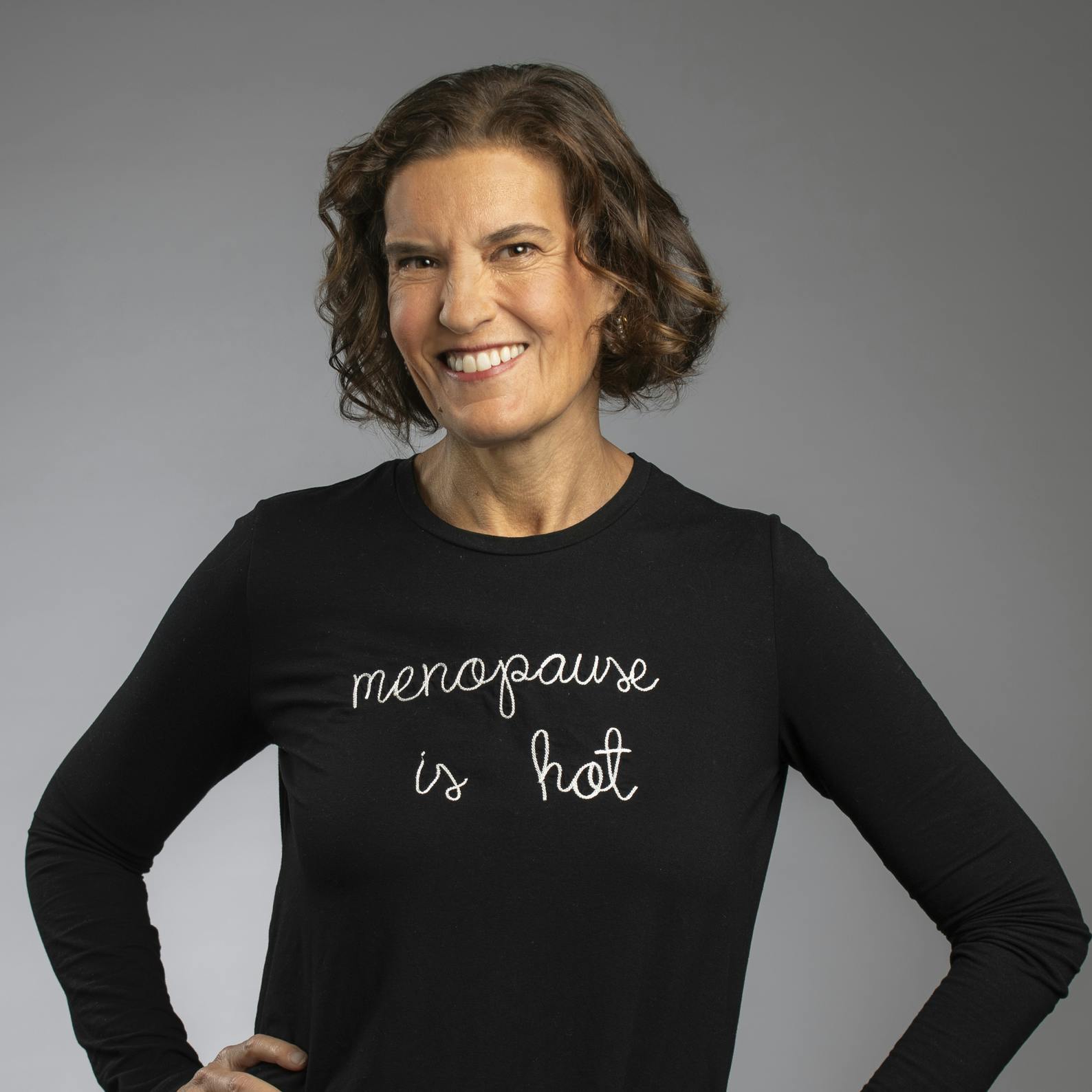Joanna Strober, Midi’s CEO and co-founder, has spent her career building businesses that unlock the potential of women and their families. Often, her best ideas start with her own pain points, and hormone transition was one of them. She tells that story here:
Wide awake at 3 a.m.
“I didn’t even know the word perimenopause when I was deep in it, and dealing with symptoms. I was still getting my period regularly, so I didn’t connect what was happening to my hormones, or even think of going to a doctor about it. But I knew my body was really “off.” It started with hot flashes in my mid forties, and by 47, I stopped sleeping. Insomnia had never been a problem for me, but suddenly, I was having terrible night sweats that would wake me up at 3 a.m., and I couldn’t fall back asleep for an hour or more. The next day I would be exhausted and crabby. I gained weight because I was eating in an effort to energize myself, literally snacking to stay awake!”
Googling, sharing, and texting in the dark
“I’m a big researcher, so I turned to Google and read dozens of articles and studies on sleep disruption. None of them talked about how hormonal transition affects women’s sleep, because of course, all the reporting and research was designed to address average bodies, which basically means male bodies. Meanwhile, I talked to my friends and discovered a lot of them were awake in the middle of the night, too. We started texting each other in the dark, sending articles back and forth, and comparing notes.”
Finally, a doctor who asked the right questions
“I spent a solid year looking for solutions. My primary care doctor gave me sleeping pills, but said they were addictive and to use them only rarely. I also tried CBD and melatonin, but nothing helped. Then I read about a hormone specialist doing online visits. She didn’t take insurance, but I was curious and pretty desperate, so I booked time with her. Our conversation changed everything. She immediately understood my symptoms, asked the right questions about my body, and listened. She started me on an estradiol pill and progesterone, and one morning about two weeks later, I opened my eyes and realized I had slept through the entire night! I could barely believe it.”
Treatment works, so why is it so hard to get?
“Looking back, I now see how hormone transition affected not just my sleep, but also my energy, weight, mood, sex life… and how all of it improved with treatment. That experience made me ask questions: Why wasn’t expert care for women at midlife easily accessible and covered by insurance? Why didn’t more women know about hormone transition, and all the potential ways to manage it—whether with hormones, or non-hormonal prescriptions, or supplements? So I started talking to all of my friends and interviewing doctors in the field. Interestingly, every ob/gyn I spoke with confirmed that hormone therapy is safe for the vast majority of women, and that they were on it personally, but they wouldn’t recommend it to a patient unless she brought it up. Pretty quickly it occurred to me: Someone needs to start a company to fix this.”
An issue of equity
“My friends—amazing, ambitious women going full speed ahead—were getting derailed in their lives and careers. They were downsizing rather than upsizing, because they felt worn out from dealing with symptoms. Now I realize this lack of care is an issue of equity. My whole career I have focused on equity for women and for parents. I saw that women could not reach their potential without access to great healthcare at midlife. I got curious, I got angry, and with the help of my co-founders, I got moving. That’s really the genesis of Midi.”
Joanna’s regimen
- Estrogel and progesterone for sleep, hot flashes, and vaginal dryness
- Calcium and Vitamin D for bone strengthening
- Collagen peptides for skin
- Magnesium for headaches
- Walks—including walking meetings—for stress, fitness, fun, all of it
Midi’s mission is to revolutionize healthcare for women at midlife, wherever they live and whatever their health story. We believe that starts with education, to help all of us understand our always-changing bodies and health needs. Our core values guide everything we do, including standards that ensure the quality and trustworthiness of our content and editorial processes. We’re committed to providing information that is up-to-date, accurate, and relies on evidence-based research and peer-reviewed journals. For more details on our editorial process, see here.
 Midi Team
Midi Team


